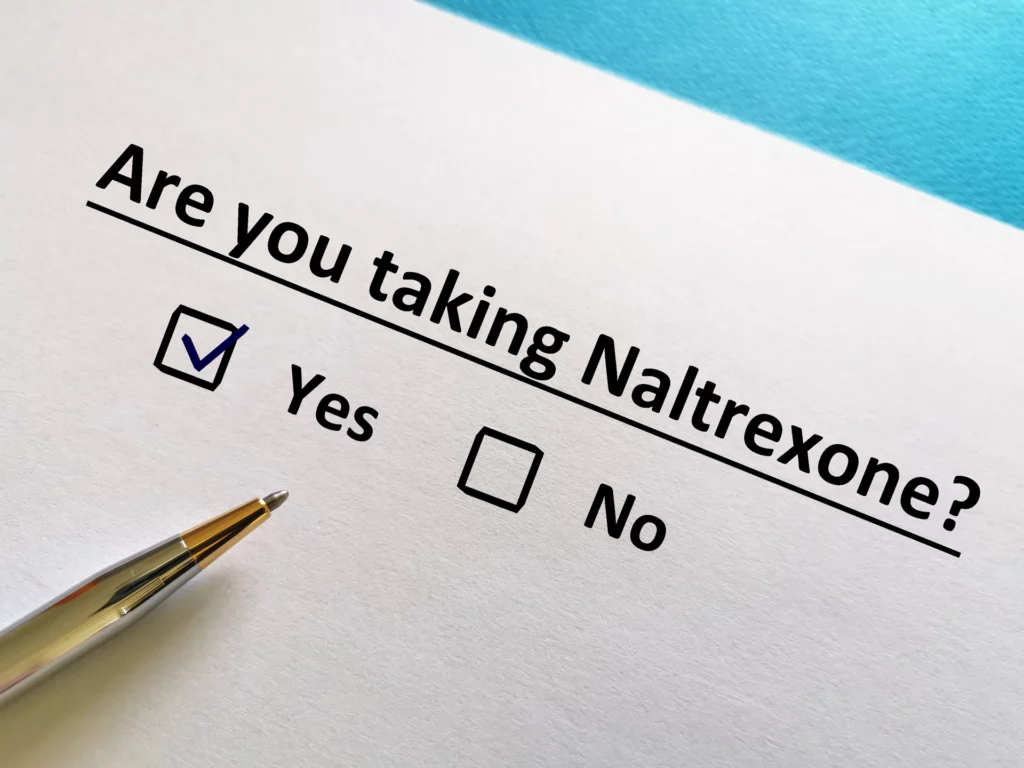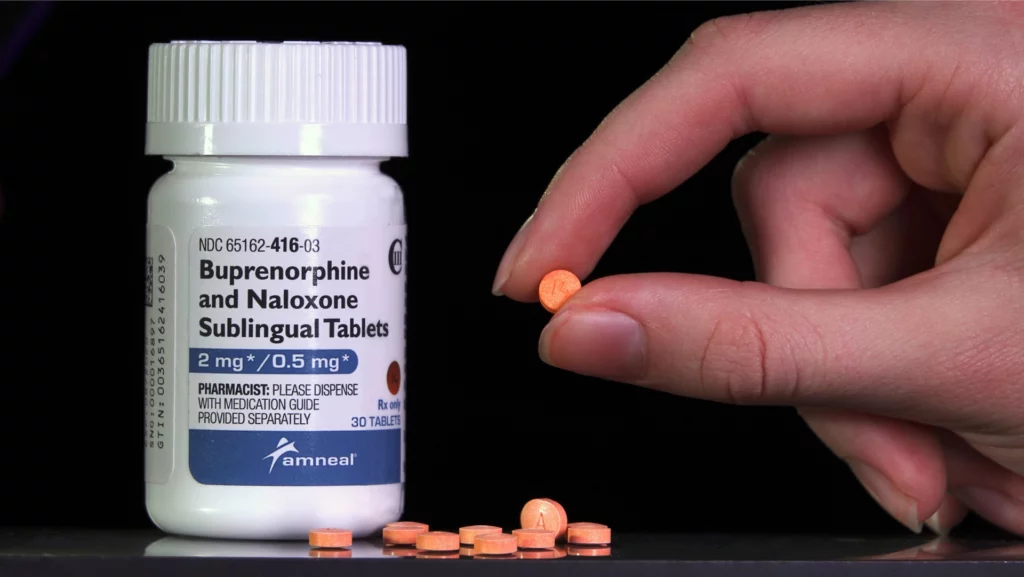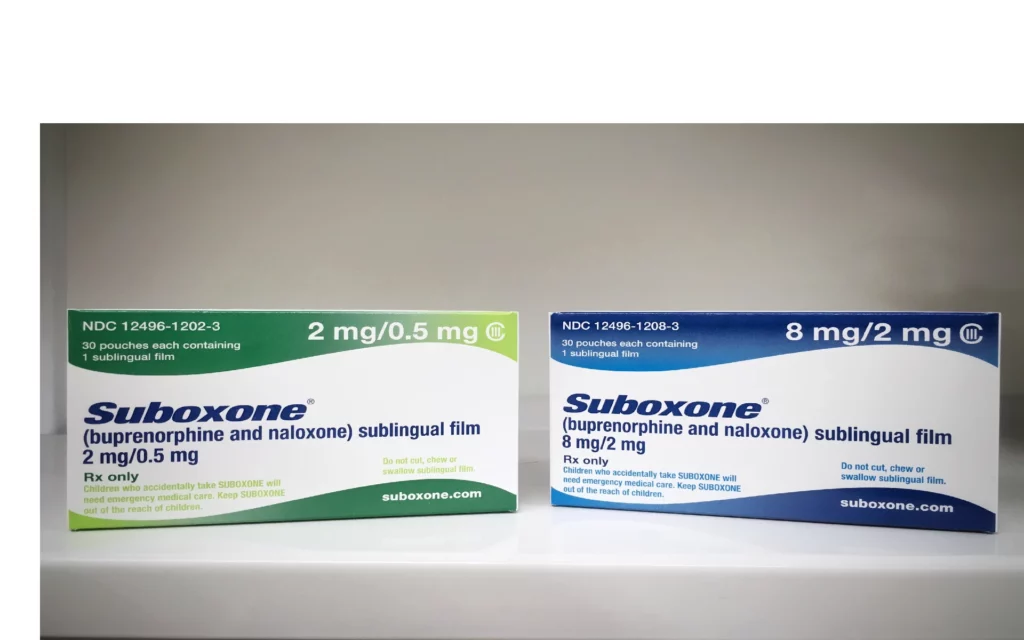Suboxone is a drug that has been used to treat opioid withdrawal as well as for alcohol withdrawal in limited instances. It’s a combination of two other chemicals, buprenorphine, and naloxone.
Buprenorphine is an opioid used to taper opioid intake in others who are addicted to the substance. Naloxone is a competitive inhibitor, blocking the impact of opioids on the brain. In combination, they provide a helpful way for individuals trying to break their opioid addiction to leave it behind.
Is Detox from Suboxone Needed?
What Is Suboxone?
Common Suboxone Side Effects
What areMedication-Assisted Treatments?
Suboxone is a class of drugs that are used to help with opioid addiction and recovery. Medication-assisted treatment (MAT) is an accepted approach to dealing with addiction recovery. Individuals who are addicted to a substance will find it hard to stop using it. Some medications can work to help the body break its dependence on a substance.

Suboxone as a Component of Detox
Suboxone and the Phenomenon of Tolerance
Tolerance usually leads to dependence, unfortunately. As a person starts to use a substance regularly, their brain chemistry changes. In the case of opioids, this change may remain, even if a person doesn’t use anything by Suboxone for an extended period.
Suboxone supports that dependence but does nothing to stop a person from having those feelings. Thus, if a person wants to truly leave their opioid addiction behind, they’ll need to learn how to break their dependence on Suboxone.
Signs Of Suboxone Dependence

The Disease Concept of Addiction
However, if a person takes Suboxone without proper supervision, they can quickly become addicted to that substance instead of another opioid. The constant need for Suboxone may force a person to seek out Suboxone treatment continually.
Some members of the medical community term this behavior “spanning.” If a person constantly seeks treatment for opioid addiction, despite completing the treatment before, it’s a good sign that the person has become dependent (or even addicted) to the opioid.
Tips For Getting Off Suboxone
Withdrawal symptoms they may face may be both mental and physical in nature. Among the most common symptoms of Suboxone withdrawal include:
- Cravings
- Nausea/Vomiting
- Difficulty focusing on something
- Anxiety
- Muscle or body aches
- Fever/chills
- Depression
- Headaches

Day 1-3: During this stage, the initial physical symptoms start showing up. Muscle aches, anxiety, and insomnia set in. There is some craving for the substance, but nothing overwhelming.
Day 4-7: More insomnia occurs as the body eliminates the leftover Suboxone from the bloodstream. Anxiety and depression increase rapidly at this stage as the mental impact of withdrawal begins.
Week 2-4: The next few weeks lead to more depression and anxiety. Therapy can help cope with these feelings and offer ways to deal with the lack of the substance over the long term.
Week 5+: Long-term dependence on the drug is still present, and even though the body no longer craves it, the mind still does. Remaining sober over the long term requires maintenance.
- Exercise: Suboxone typically creates a flood of dopamine in the brain, but so does exercise. By working out, a person can shift their dependence from Suboxone to something healthier. It also aids in taking a person’s mind away from the substance and allowing them to focus on something else to avoid the cravings that may persist.
- Hydrate: Withdrawal includes things like sweating and vomiting. These actions help to clear the body of Suboxone but also deprive the body of valuable fluids that it needs for other functions. Hydrating helps to avoid the feeling of tiredness that might be similar to a hangover. Some individuals drink tea during this time to help them with their hydration. If doing so, it’s vital to ensure that the tea has no diuretic properties to eliminate water that one wants to retain.
- Remember to Eat: Withdrawal may be harrowing for some, leading to them neglecting their appetite. This lack of nutrition could be detrimental to the process and may potentially force it to go even longer than it usually would. Eating healthy foods can aid the body by giving it valuable nutrients.
Do I Need Suboxone Detox?
Suboxone detox is a crucial part of the recovery process. People who want to quit the drug can’t keep it in their bloodstream since the urge to use it will always be there. Breaking the dependence requires detoxifying the body.
Going through withdrawal can be a scary prospect, but accredited drug detox facilities such as South Shores have staff on hand that is trained to help a person deal with the physical and mental symptoms of the process.
